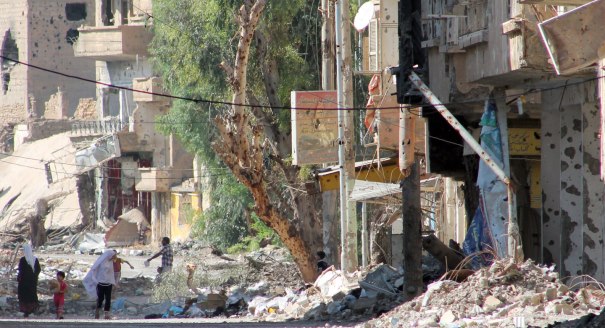The G20 summit in St. Petersburg last week laid bare the divisions in the global system. The White House made public the list of ten countries which support its position on Syria, mostly Western and Arab; President Putin, at a press conference, named the members of the opposition: BRICS, Indonesia, and Argentina. During the weekend, as the EU foreign ministers met in Vilnius with the U.S. Secretary of State, Germany also supported strong measures against Assad. This week, in Bishkek, the Shanghai Cooperation Organization (SCO) will be staging its own summit, right at the time as the United States may deliver its strikes against Damascus. It may appear that the world is again split, along slightly different lines than during the Cold War, but with several actors playing familiar roles. This, however, is too superficial a view.
The U.S. military intervention in the Syrian civil war will put the question to the Russian and Chinese leaders, what do they do, not merely what do they say about it. Vladimir Putin made it clear that Russia would continue to support Syria, short of becoming involved in the fighting itself. China’s Xi Jinping, however, has been far more reticent, which has been noted and appreciated in Washington. It is unlikely that Beijing will do much beyond issuing routine statements in support of state sovereignty and non-interference in countries’ internal affairs. Recently, China and Russia have stepped up their military cooperation in the form of joint exercises at sea and on land and new arms deals, but a full-blown military alliance is not in the offing.
Moscow views U.S. use of force without a UN Security Council mandate as both a violation of the international order, of which its sees itself as a guardian, and a potential threat to its own interests. Beijing, by contrast, may be secretly relieved that another emergency in the Middle East, which has the potential of sucking in the United States, makes America’s vaunted pivot to Asia a very slow march indeed. And China does not really mind a healthy chill in U.S.-Russian relations, to keep its northern rear safe. A reinvigorated reset between Moscow and Washington would have made Beijing more nervous.
A feature of the Bishkek summit will be the first big appearance of Hassan Rowhani on the international scene as Iran’s president: Iran has an observer status with the SCO. Rowhani’s bid to negotiate on Tehran’s nuclear program is being overshadowed by the war in Syria, where Iran has both an interest and a role. With the U.S. strikes against Syria announced also with Iran in mind, and Moscow and Tehran acting as de facto allies in Syria, the meeting between Putin and Rowhani will be important. One thing Russia can do in response to the U.S. threat against Damascus is to offer Iran some means to defend itself against a similar attack. Yet, Moscow, like the West, remains interested in finding a solution to the Iranian nuclear issue. So, Putin’s offer of military aid to Iran can be accompanied by his lobbying for a breakthrough on the diplomatic track, with Russia as a broker. Such a coup will not be achieved in Bishkek, of course, but the coming meeting may be a first step.
